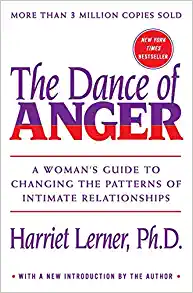Listen to this episode of the Focus with Marlene Podcast:
Get caught up with all episodes in the Moving Beyond Survival series.
When anger becomes habitual, it can be harmful.
When used repeatedly as our typical response to things that irritate us, we end up with an anger problem that can be catastrophic over time. That’s because, when we’re angry, we tend to be reactive. We no longer think rationally.
The price of staying angry
Do you find yourself responding more and more with anger to annoying situations?
- When a car cuts you off on the freeway, do you want to get even?
- When your spouse does not acknowledge appreciation for the things you do, or people at work keep taking advantage of you, do you want to retaliate?
There continues to be that child in us that wants revenge when life isn’t fair.
Anger, like all emotions, has a purpose.
Like fear, it can help us survive, can motivate us to take action and make appropriate and necessary changes. It protects us when life threatens us psychologically or physically.
Anger is a survival mechanism because it mobilizes us into action. There is an adrenaline rush – a powerful, strong, energizing force in response to what is happening around us.
Anger can be either constructive or destructive.
Thoughts associated with anger usually include perceived injustices, perceived rights and assumed lack of responsibility in others. It can become a habit and our favorite mode of communication. Left unchecked, anger becomes toxic and corrosive.
Sometimes we feel more in control and less vulnerable when we find fault with others and deflect from our own errors of judgment or behaviors. When we react without restraint to that powerful rush of energy or without identifying the problem connected to it, we not only inflict pain on others, but also on ourselves.
It is our responsibility to discover the underlying reason associated with an anger problem.
When anger is our first response to things we don’t like, it often has its roots in our past. Children often experience angry outbursts from troubled parents and are unable to express their own anger. Anything they have done right is dismissed as unimportant.
Wounds from childhood run deep. While buried in our sub-conscious, we continue to be influenced by them.
If you find yourself constantly feeling angry, ask yourself:
- What were you told about anger when you were little?
- List the times in your past when your anger was not expressed or acknowledged.
- Where do you direct your anger: toward yourself, others, your parents, boss, etc.
- When you feel angry, does the situation warrant that feeling?
When we allow ourselves to become a victim, we will experience an underlying level of anger. Being a victim takes away our personal power to make changes and choices.
We can use anger to motivate necessary and appropriate change without inflicting harm.
Here are some suggestions to try if you constantly get angry:
- Keep an anger diary. When are you feeling angry? What are the thoughts or beliefs associated with those feelings? Are there events that constantly trigger your anger? After a week recording, you will see a pattern emerge of when, why and how long.
- What alternative behaviors can you use when feeling angry, giving you time to readjust your thinking and response?
- What situations could you avoid, knowing they trigger anger?
- When your anger is triggered, count to ten – then count again if necessary to delay that initial anger response.
- Practice expressing anger assertively instead of aggressively.
- Replace irrational beliefs such as, “life should be fair” with rational thinking.
- Write yourself a self-management contract. Include commitments you are making and affirmations to keep yourself on track.
Unchecked anger can move to resentment.
Sometimes we believe that all anger is not good, and that good people shouldn’t get angry. But when we ascribe to that philosophy, we fail to address the underlying issues associated with it and keep denying or burying it until we develop an ongoing internal bitter resentment. We have then added to the problem.
Anger, like all our emotions, has a purpose, and we need to acknowledge and listen to what it is trying to tell us. It is not to be ignored, stuffed, or suppressed. It won’t go away by itself.
When denied, anger will re-appear in the form of illness, depression, rage and even ending of one’s own life or that of another. It has an energy that, when turned inward, will gradually eat us up from the inside out or becomes self-hatred and self-loathing.
So, what can we do?
First, STOP.
- Stop avoiding
- Stop rationalizing
- Stop pushing it away
- Stop medicating with drugs or alcohol to dull its pain and underlying fear
Second, ALLOW yourself to feel your emotions.
Ask yourself:
- Why do I feel so angry all the time?
- What is it trying to tell me?
- What am I supposed to learn?
Third, IDENTIFY the problem and look for solutions.
- What constructive options do I have?
- What responsible behaviors can I apply?
- What positive changes do I want to have happen?
- What problem solving strategies can I use to bring about a positive outcome?
Anger has a purpose.
Connect with its message and all the other emotions that are often buried with it: fear, guilt, pain. Work through them to healing.
If you have an ongoing problem with anger, please seek out a good professional mental health counselor or therapist to help you work through underlying long-held issues attached to it.
Helpful books:
The Dance of Anger, A Woman’s Guide to Changing the Patterns of Intimate Relationships, Harriet Goldhor Lerner, Ph.D.
Anger: How to Live With and Without It, Albert Ellis, Ph.D.
When Anger Hurts: Quieting the Storm Within, Matthew McKay, Ph.D., Peter D. Rogers, Ph.D., Judith McKay, R.N.





